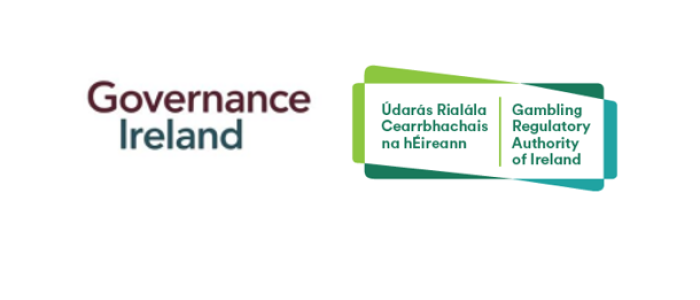Governance Ireland’s ‘Public Consultation Response Report’ published by the Gambling Regulator as we move towards TRIS process
05 Jun 25

Response to Consultation Process and Update on Progression with TRIS Notification from the Gambling Regulatory Authority of Ireland (GRAI)
GRAI response:
The Gambling Regulatory Authority of Ireland (GRAI) wishes to express its sincere thanks to all stakeholders who contributed to the recent public consultation process, concerning the proposed implementation of provisions of the Gambling Regulation Act 2024 (Number 35 of 2024) (the “Act”) through two sets of regulations. The consultation was specifically in relation to Section 38 (Application Fees), Section 108 (Licence Durations), and Section 129 (Additional Licence Conditions) of the Act. The open consultation was held over a four-week period between April and May 2025, in keeping with the GRAI’s evidence-led, inclusive approach to our regulatory obligations. This engagement reflects our commitment to fostering a well-regulated, transparent, and socially responsible gambling environment in Ireland.
The GRAI commissioned Governance Ireland, an external and independent governance consultancy firm, to undertake the collation, thematic analysis, and review of the submissions received during consultation,
Governance Ireland’s ‘Public Consultation Response Report’, presents a comprehensive review of the twenty-seven (27) formal submissions received. The submissions received were from a cross-section of stakeholder categories, including industry operators, representative bodies, consultants, public bodies, and civil society organisations. All submissions were weighted equally, and the submissions were factored into the key thematic areas defined by the consultation and referenced in the Report.
Following careful consideration of the submissions received and Report from Governance Ireland, the GRAI notes that while constructive feedback was provided across the proposed provisions (application fees, licence durations, and additional licence conditions) the majority of submissions, particularly from industry operators, expressed either supportive or pragmatic views on the proposals, including constructive suggestions for enhancement, rather than fundamental objections. Where concerns were raised (notably around the application fee structure and licence duration), these often stemmed from misunderstandings or divergent interpretations of terms within the Act, such as “turnover”. The GRAI commits to address the misunderstanding of terms/definitions through guidance documents in the future. The GRAI will also ensure that the Regulations clarify the position in relation to premises fees, as these apply to all premises applying for a betting or gaming licence.
A number of observations received highlighted that without having full oversight of the fee governance framework, such as renewal fees and charges, it was difficult to provide a comprehensive analysis of the application fee provision. The GRAI acknowledges this and will ensure that the relevant fee structures will be communicated in a timely and constructive manner. It should be highlighted that licence type remote gaming is not currently licensed within Ireland and therefore, direct comparisons of overall application fee costs may not be consistent. It is also noted that these fees are for a new, self-financing regulatory regime with enhanced oversight and longer licence terms than the existing excise licensing regime in Ireland.
A number of observations on application fees and licence durations took a comparative approach to reviewing the fees against the fees of other jurisdictions and the UK in particular. The GRAI reviewed the observations and found that the fees are not directly comparable with the UK given the differences in Regulatory structure and responsibilities. Many of the regulatory obligations that will be part of the GRAI’s responsibilities are not part of the Gambling Commission’s remit in Great Britain and instead are part of the functions of the local councils. Market size variations, differences in taxation policies and sectors that are regulated by Regulators in other jurisdictions also mean that the cross-jurisdiction comparisons are not comparing like- for- like.
The GRAI must balance the complexity of licensing arrangements and the ability to ensure that costs are recovered proportionately from licensees. Where a relevant gambling activity requires a licence, it is also important to ensure that the fees payable for that licence reflect the related regulatory costs that must be recovered from such licence holders, taking into account the size and complexity of an operator’s business in terms of the risks to the licensing objectives.
With regards to licence duration, the Act specifies a minimum time frame of one year. The GRAI is proposing that licences will be of three years duration. Whilst the GRAI notes that the proposed three-year licence term was supported by three respondents, the GRAI acknowledges the theme of the responses in relation to the consideration of an extension of the licence term. As such, the GRAI will commit to keeping the licence term under review as the licensing regulatory framework is established but are satisfied that three-years duration is an appropriate starting point.
The GRAI reaffirms that the development of its licensing framework is grounded in robust evidence, public interest considerations, and the statutory obligations placed on the GRAI in the Act. Accordingly, the GRAI intends to proceed with the formal notification of the regulations to the European Commission, Member States, and the public under the Technical Regulation Information System (TRIS), in line with Directive (EU) 2015/1535. The TRIS notification is a standard procedural requirement for technical regulations, ensuring regulatory coherence across the European Union.
The GRAI will continue to engage with stakeholders as we implement the licensing framework and where necessary, provide further guidance. Constructive dialogue remains central to our approach, and we welcome ongoing collaboration with all relevant parties, including industry participants, public health bodies, members of the public, civil society groups, and regulatory peers.
The GRAI remains committed to transparent, proportionate and effective regulation of Ireland’s gambling industry.
Full Report Available here: Full Report
*Please note that the Observations outlined in Section 7 of the Full Report are based wholly on the substance and weight of views extrapolated from the submissions received under the consultation process